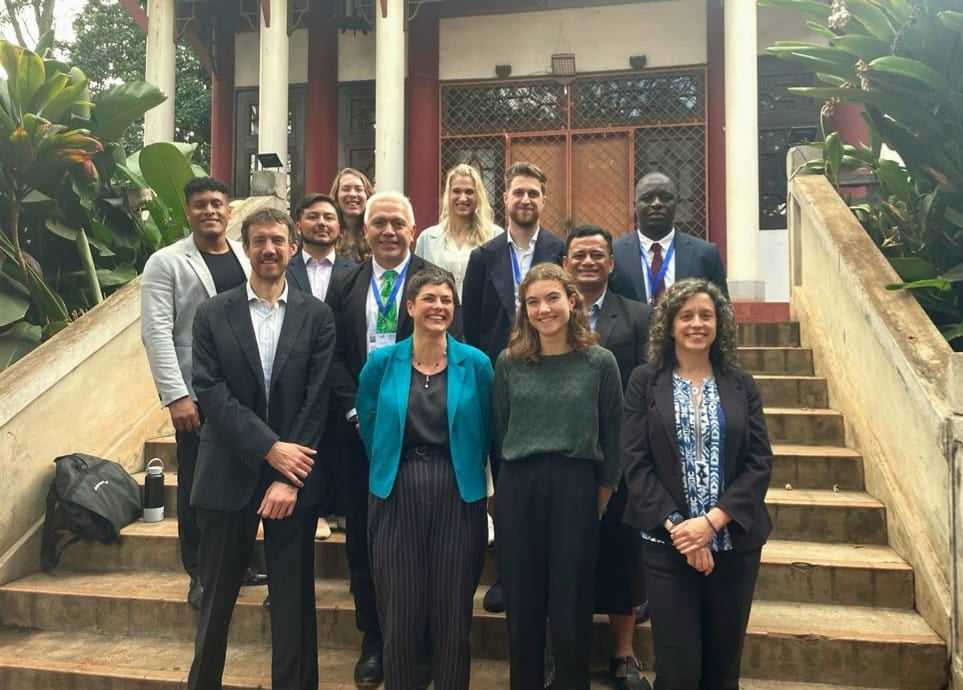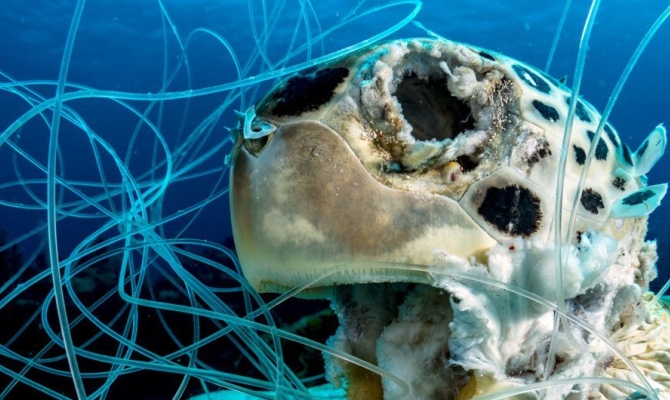Abandoned, Lost, Discarded Fishing Gear (ALDFG), also known as Ghost Gear, is one of the most harmful forms of marine debris devastating our Ocean.
Studies have found that 640,000 tonnes of fishing gear, consisting of fishing nets, traps and fishing lines, are lost and abandoned in the Ocean, posing a major threat to marine ecosystems.
The threat is not lost on the Secretariat of the Pacific Regional Environment Programme (SPREP), charged with protecting and managing the environment and natural resources of the Pacific, whom in Nairobi continues to call for a more robust regime to address the full life cycle of Ghost Gear.
“Ghost gear is a serious issue for Pacific Small Island Developing States (PSIDS). The marine life, the moana, the Blue Pacific is fundamental to the Pacific people livelihoods. The iconic species such as whales, turtles, sharks, rays, dolphins are greatly affected by ghost gear,” said SPREP’s Director of Waste Management and Pollution Control (WMPC), Anthony Talouli.
“The current data that, the GEN6 reports from the SPC/FFA Observers from the purse seiners and longliners, for the last twenty years from 2003 – 2023, with about 25,000 MARPOL violations shows that there is no change in the behaviour of fishers. 53% of these incidents come from DWFNs (distant water fishing nations), countries not from the Pacific.”
Talouli made the point when he spoke during a side event on the margins of the third session of the Intergovernmental Negotiating Committee (INC-3) to develop an international legally binding instrument on plastic pollution, including in the marine environment, in Nairobi Kenya.
The “Untangled: The Plastics Treaty’s Critical Role in Tackling Fishing Gear-Vol.2” side event built upon a Breakfast Briefing on Fishing Gear held at the margins of INC-2 in Paris, France earlier this year. Hosted by the Environmental Investigation (EIA), Agency OceanCare, Global Ghost Gear Initiative (GGGI), SPREP and MarViva, the session explored the need for full lifecycle governance of fishing and aquaculture gear, the supportive role of regional governance and, importantly, their current limitations, and how this understanding can inform the work of negotiators at INC-3.
The event also featured the Director of the Cook Islands National Environment Service, Halatoa Fua.

“The current management practices and regimes such as the international convention for the protection of pollution from vessels (MARPOL), and regional instruments such as the WCPFC Conservation Management Measure 2017/04 on Marine Pollution, are not working,” Talouli told the audience.
“We need a much more robust regime to address the full life cycle of ghost gear, to address the plastic materials in fishing gear.”
During the panel session, the speakers agreed that marine plastic pollution and, especially the Ghost Gear issue, is complex and will require a package of policies coordinated globally and implemented nationally, regionally and internationally, covering the full lifecycle of plastic fishing gear and involving multiple stakeholders, in order to be effective.
They recognised that the ongoing INC process for an ILBI provides a once-in-a-lifetime unique opportunity to improve the status quo, incorporate specific measures for the holistic prevention, mitigation and remediation of ALDFG, and catalyse better coordination, cooperation, knowledge-sharing and capacity building to alleviate one of the most harmful forms of marine plastic pollution. “The opportunity to include specific provisions of ghost gear to address the full life cycle in the ILBI through a sectoral approach will assist the Pacific SIDS in addressing this scourge,” Taoluli said.
“SPREP will work with its regional organisations in fisheries and other sectors such as SPC, FFA, WCPFC as well as the regional and international NGOs and CSOs to provide assistance to PSIDS to negotiate strong and ambitious ILBI that protects our oceans, our livelihoods, our Moana and our Blue Pacific.”
The third Intergovernmental Negotiating Committee to develop an international legally binding instrument on plastic pollution, including in the marine environment took place in Nairobi Kenya from 13 – 19 November 2023.
The Pacific Islands are represented by the Cook Islands, Federated States of Micronesia, Fiji, Kiribati, Marshall Islands, Nauru, Niue, Palau, Papua New Guinea, Samoa, Solomon Islands, Tonga, Tuvalu and Vanuatu through the support of the Government of Australia and the United Nations.
SOURCE: SPREP/PACNEWS














